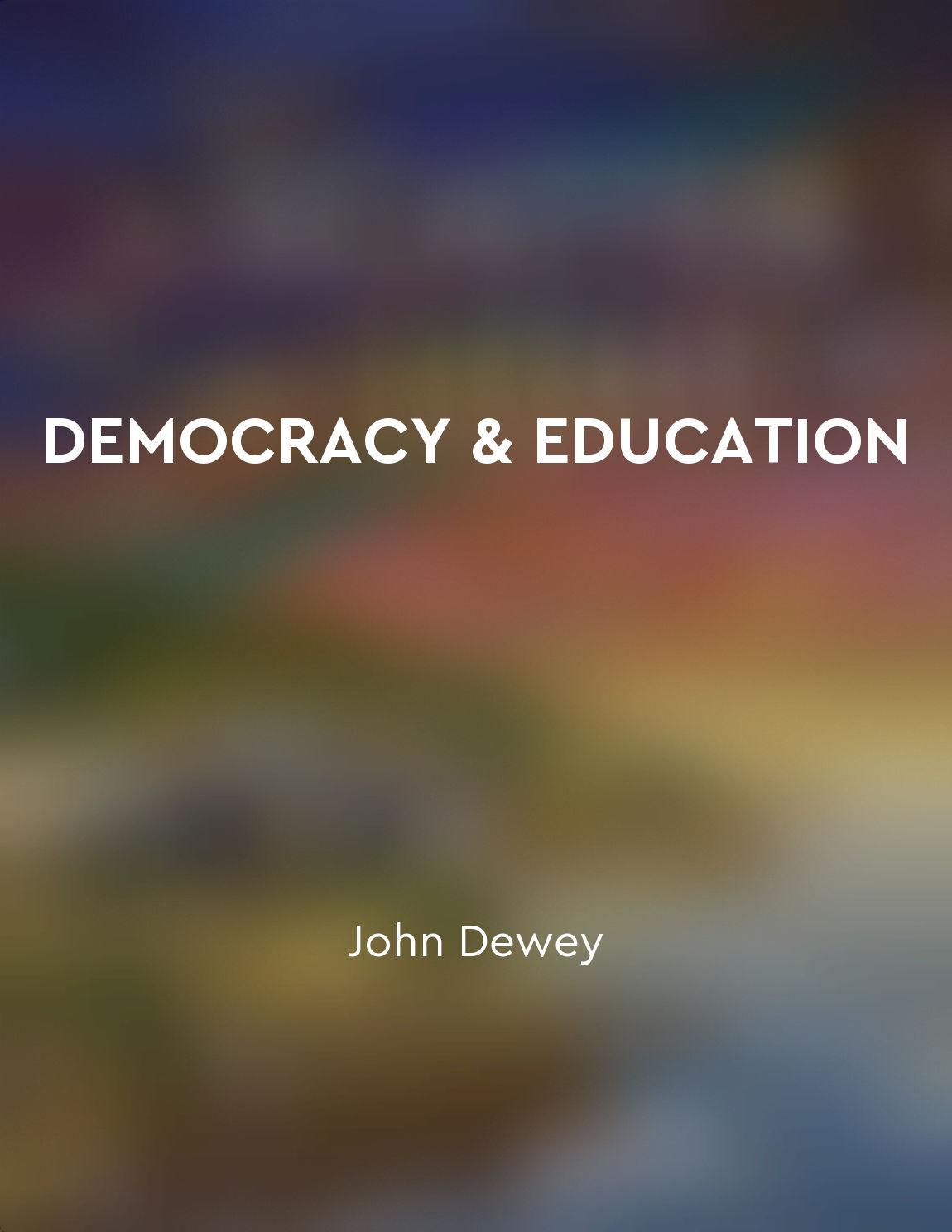Democracy empowers individuals to participate in decisionmaking from "summary" of Democracy On Trial by Jean Bethke Elshtain
Democracy is often lauded for its ability to give individuals a voice in the decision-making process. This empowerment of the individual is a central tenet of democratic governance. In a democracy, individuals have the opportunity to participate in the political process through voting, running for office, and engaging in political activism. This active participation is seen as essential to the functioning of a democratic society, as it ensures that the voices of the people are heard and taken into account when decisions are being made. By giving individuals a say in how their society is governed, democracy allows for a more inclusive and representative form of government. Instead of decisions being made by a select few in power, democracy spreads power among the people, giving everyone a chance to have their voices heard. This not only helps to prevent the concentration of power in the hands of a few, but also fosters a sense of ownership and accountability among the citizenry. Furthermore, democracy empowers individuals to hold their leaders accountable for their actions. In a democratic system, leaders are elected by the people and are therefore expected to govern in the best interests of their constituents. If leaders fail to do so, they can be voted out of office in the next election. This accountability mechanism helps to ensure that those in power are held responsible for their decisions and actions, and that they are responsive to the needs and concerns of the people. In addition to holding leaders accountable, democracy also allows individuals to shape the policies and laws that govern their lives. Through participation in the political process, individuals can advocate for issues that are important to them, influence public opinion, and work towards enacting change. This active engagement in decision-making not only empowers individuals to have a say in the direction of their society, but also helps to foster a sense of civic duty and responsibility among the citizenry.- Democracy empowers individuals to participate in decision-making by giving them a voice in the political process, spreading power among the people, fostering accountability among leaders, and allowing individuals to shape the policies and laws that govern their lives. This active participation is essential to the functioning of a democratic society, as it ensures that the voices of the people are heard and taken into account when decisions are being made.
Similar Posts

Schools should empower students to think independently
In the educational process, one of the primary goals should be to cultivate the ability of students to think independently. By ...
Revolutions can be necessary for change
Revolutions, although often viewed with fear and disdain, can sometimes be necessary for bringing about significant change in s...

Schools should cultivate critical thinking
The cultivation of critical thinking within schools is a fundamental necessity for the development of a democratic society. Cri...
The assault on reason can be countered through education and awareness
In an era where reason and rational discourse seem to be under constant attack, the importance of education and awareness canno...

